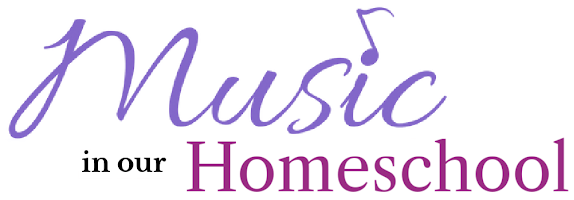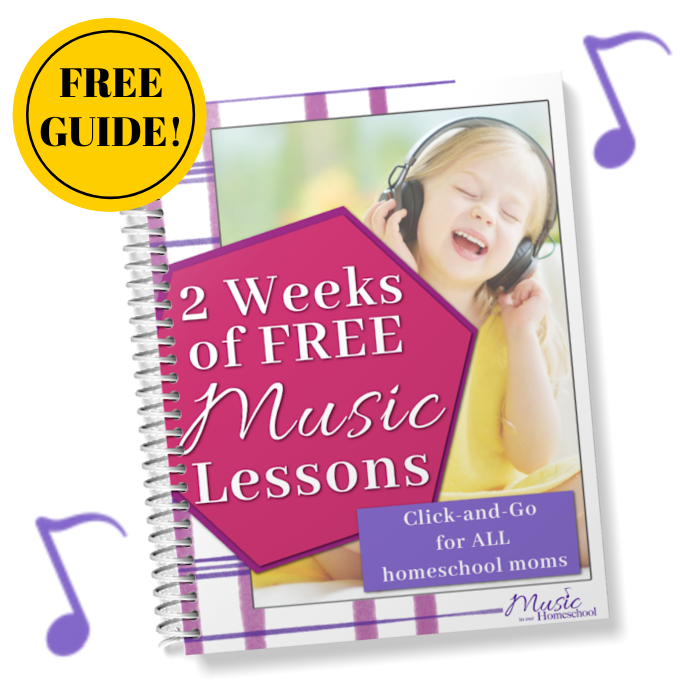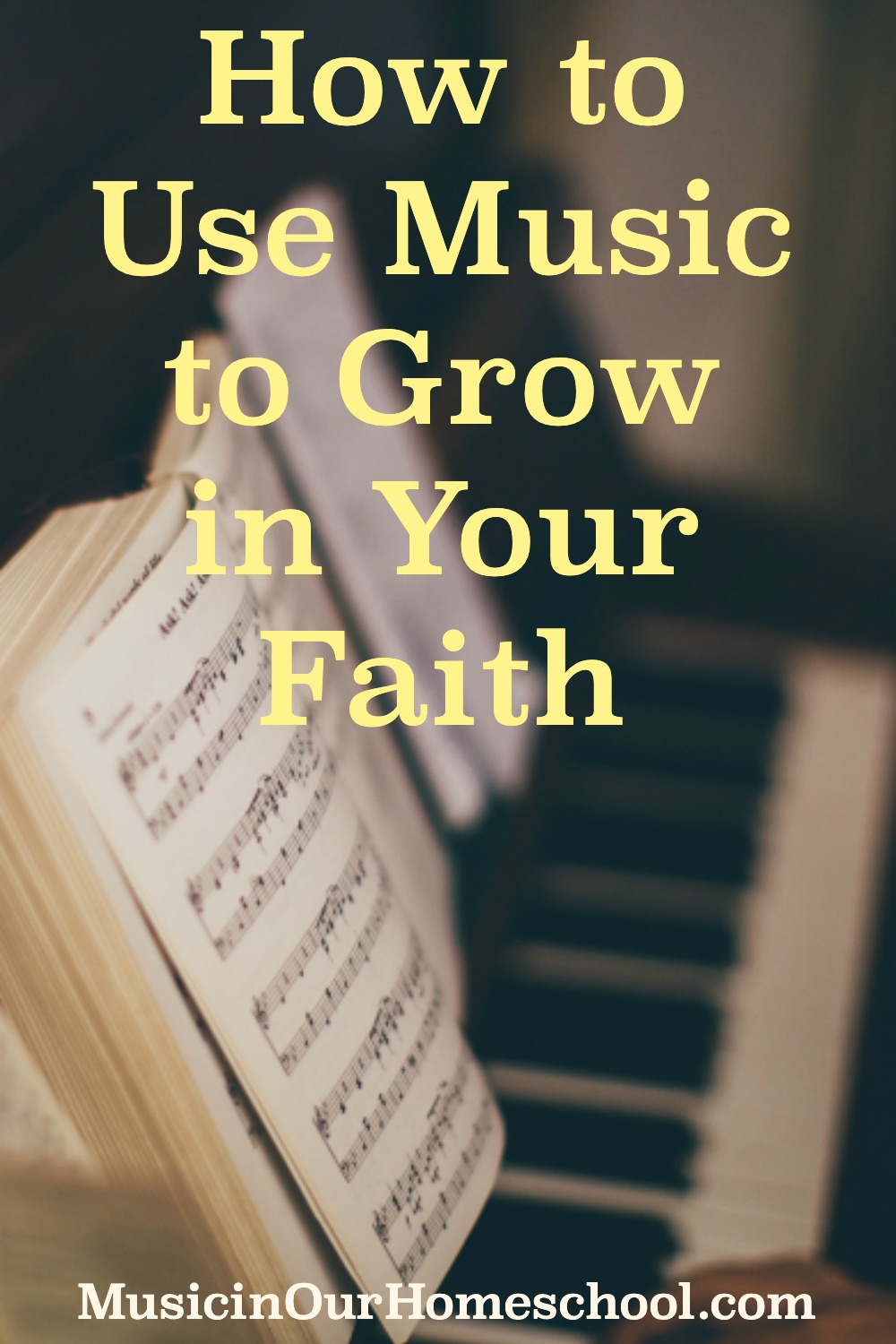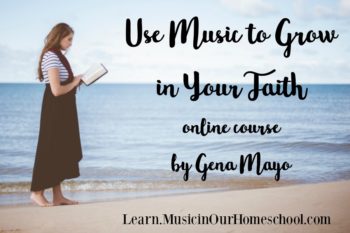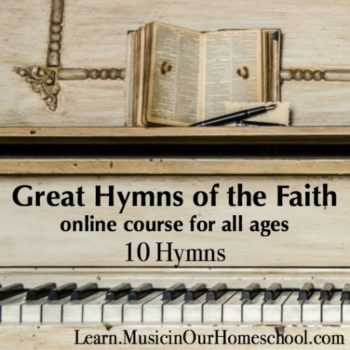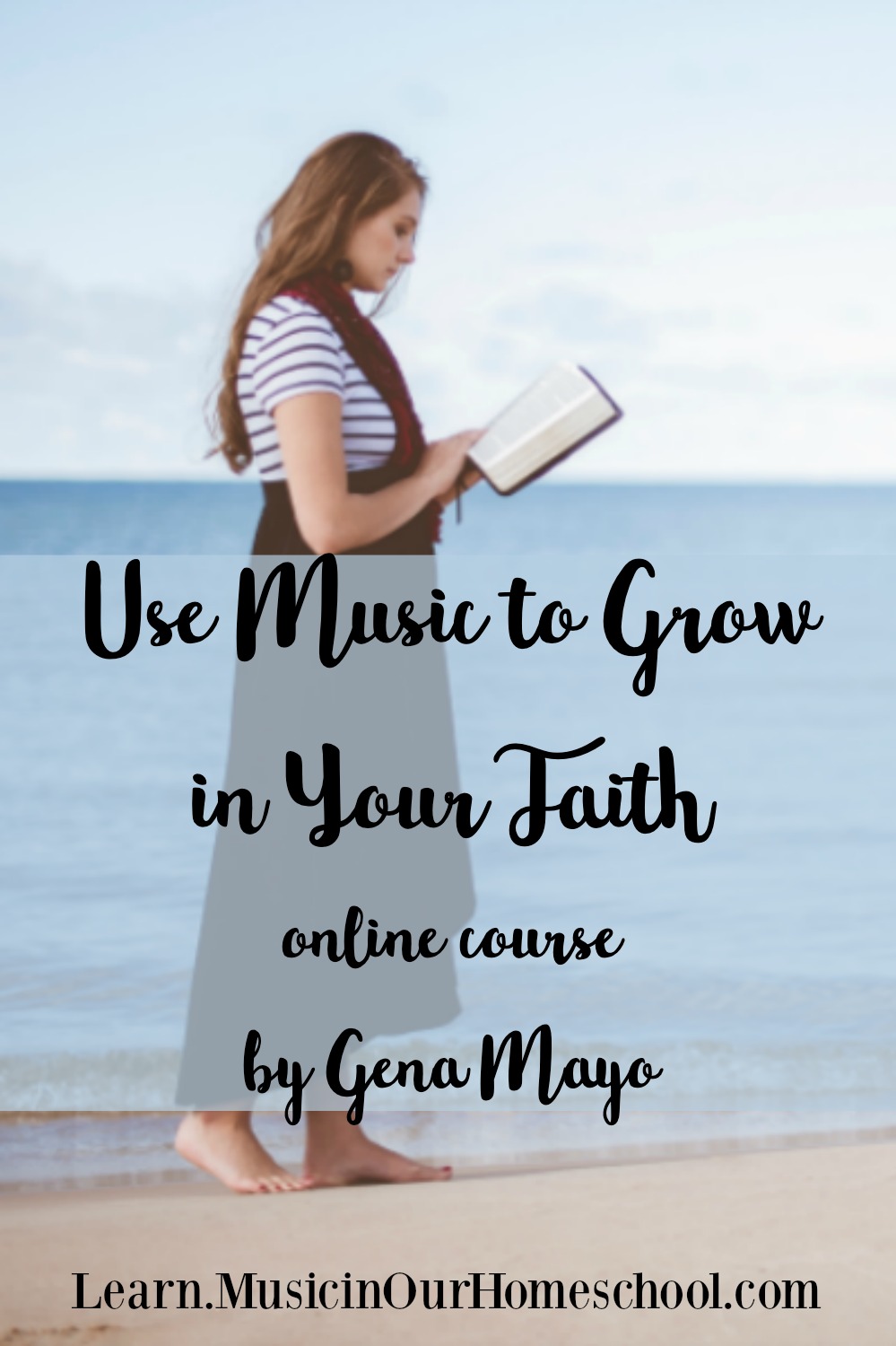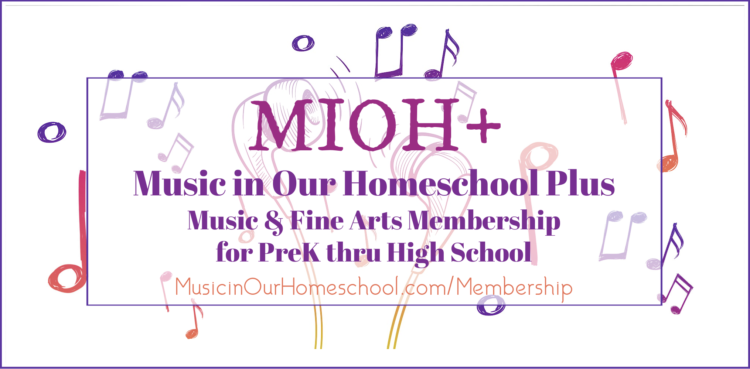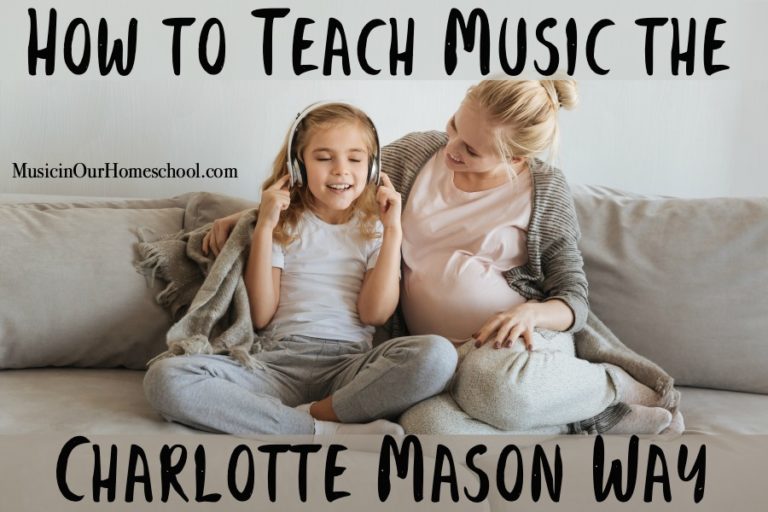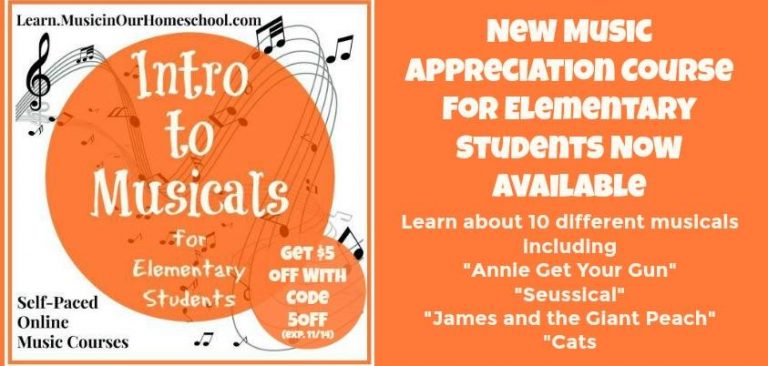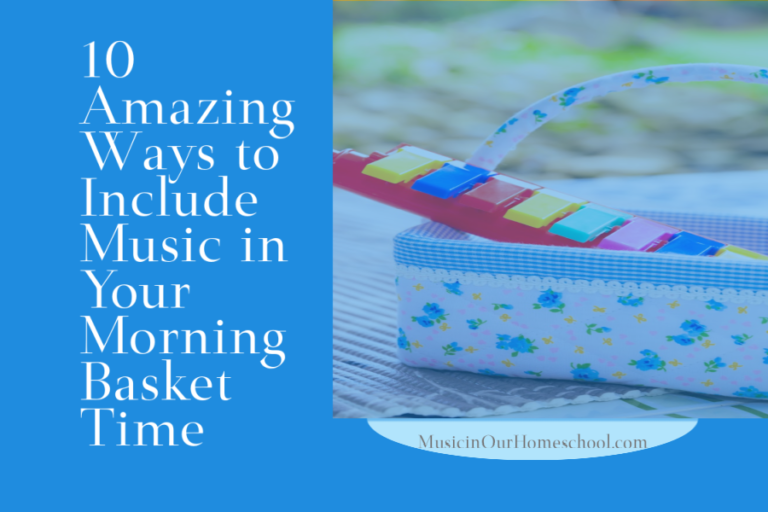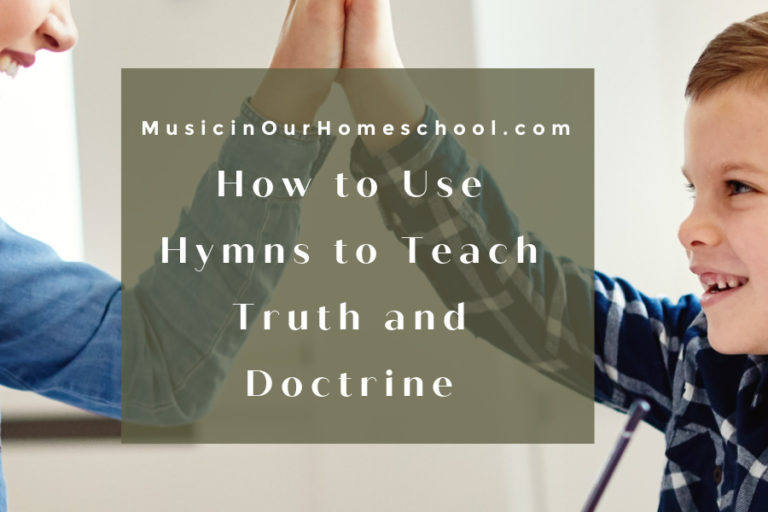How to Use Music to Grow in Your Faith
How to Use Music to Grow in Your Faith
If you're looking for a new way to increase in your knowledge of God and grow spiritually, I'd love to share with you today how to Use Music to Grow in Your Faith.
“Use Music to Grow in Your Faith” online course
One of the first songs I remember singing that made an impact on me spiritually was a beautiful choral rendition of the 23rd Psalm called “Brother James Air”.
As a 6th grade child, I began to recognize that music isn't just for having fun or enjoying. It has the power to really reach deep into my soul in a way that nothing else could.
Music was obviously created by God and can be used by Him to reach us and by us to connect with Him.
Today we'll talk about this in-depth. I'll share what the Bible says about music; various ways to worship using music; and specific techniques, songs, instrumental pieces, and styles that you can use starting today!
Go ahead and download the free journaling page that goes with this blog post here:
What the Bible says about Music
The first time music is mentioned in the Bible is in reference to the man named Jubal in Genesis 4:21. Jubal was the fourth generation from Adam through Cain and is recorded as being “the father of all those who play the lyre and pipe.” So, even from the very beginning of humanity, music has been a part of life.
The Psalms
The book of the Bible that has the most references to music is the book of Psalms. The greatest song and psalm writers were Moses, David, and Solomon. See Psalms 92, 95:1-2, 96:1-2, 101:1, 104:33-34, 146:1-2, and 150.
There are more Psalms that refer to music. You might want to take some time in your daily devotions to discover them all!
Scripture references of song lyrics
Songs were sung throughout the Bible. Here are some in addition to those in the book of Psalms: Exodus 15, Judges 11:34, 1 Samuel 18:6–7, Luke 1:46-55, Revelation 5:9-10, and Revelation 15:3-4.
Others singing in the Bible
Jesus and the disciples sang in Matthew 26:30.
Paul and Silas sang in jail: Acts 16:25.
Scriptural commands to sing
can be found in 1 Chronicles 15 and 16, 2 Chronicles 5:13, Ephesians 5:18-19, Colossians 3:16, James 5:13, and 1 Corinthians 14:26.
Good music vs. bad music?
Is there such a thing as good music versus bad music? There is certainly some debate amongst Christians about the beat in music or about whether we should use instruments or not; I won't go there.
It is much more clear in Scripture about whether we should sing or listen to particular lyrics, though. Read these verses: Ecclesiastes 7:5, 1 Corinthians 15:33, Proverbs 4:23-26, Philippians 4:8, Colossians 3:2-5, Romans 12:2, and Daniel 3:5.
Other uses for music:
Here are a couple of other ways music was used in the Bible.
- David played his harp to soothe Saul during attacks from a harmful spirit. (1 Samuel 16:14–23).
-
Music was used for mourning (Matthew 9:23) and celebration (Luke 15:25 and Nehemiah 12:27)
If you'd like even more videos for each of these topics and examples, get the “How to Use Music to Grow in Your Faith” online course.
Using Music to Worship God
Christianity.com says, “Scripture tells us hymns and songs are used to worship God. By singing in worship, Christians proclaim the truths of God’s saving power, rejoice in His redeeming grace, and even edify and strengthen each other in singing the truth of His word.”
14 Ways You Can Use Music to Grow Closer to God!
1. Classical Music
Several wonderful composers throughout the ages were believers and worshippers of the Lord. Listen to some of their music as you worship God. You may want to do some research on these composers and their compositions. I have shared a few here to get you started.
George Frideric Handel
Handel wrote the Messiah in only 24 days! His purpose was not to entertain his listeners but to change and grow them.
“I should be sorry, my Lord, if I have only succeeded in entertaining them; I wished to make them better.” ~George Frideric Handel, to Lord Kinnoull after the first London performance of Messiah
Handel's Messiah “For Unto Us a Child is Born:”
Johann Sebastian Bach
For many years, Bach wrote music for the church. He said
Music’s only purpose should be for the glory of God and the recreation of the human spirit.
Before writing a new piece, Bach often initialed his blank manuscript pages with J.J. which means “Help me, Jesus” or I.N.J. which means “In the name of Jesus.”
At the end of a new piece, Bach wrote S.D.G. for Soli Deo Gloria, which means ‘To God alone, the glory.”
Bach's Jesu Joy of Man's Desiring:
Franz Joseph Hadyn
Hadyn said this about his work called The Creation:”
Never was I so devout as when I composed The Creation. I knelt down each day to pray to God to give me strength for my work….When I was working on The Creation I felt so impregnated with Divine certainty, that before sitting down to the piano, I would quietly and confidently pray to God to grant me the talent that was needed to praise Him worthily. ~ Hadyn
The Creation “The Heavens are Telling”:
Johannes Brahms
Brahms wrote this to a journalist in 1896:
I will now tell you and your young friend here about my method of communicating with the Infinite, for all truly inspired ideas come from God. Beethoven, who was my ideal, was well aware of this. When I feel the urge, I begin by appealing straight to my Maker…. Straightaway the ideas flow in upon me, directly from God, and not only do I see distinct themes in my mind’s eyes, but they are clothed in the right forms, harmonies and orchestration.
You see, the powers from which all truly great composers like Mozart, Schubert, Bach and Beethoven drew their inspirations is the same power that enabled Jesus to do his miracles. I know several young composers who are atheists. I have read their scores, and I assure you, Joseph, that they are doomed to speedy oblivion, because they are utterly lacking in inspiration. Their works are purely cerebral. The great Nazarene (Jesus) knew that law also, and He proclaimed it in John 15:4, ‘The branch cannot bear fruit of itself, except it abide in the vine.’ No atheist has ever been or ever will be a great composer.”
Listen to Brahm's Requiem, 2nd movement here:
Here's my Spotify Playlist for songs from this article.
2. Hymns
Church music has changed over the centuries. It is clear from the Scriptures I shared earlier that believers sang hymns (songs of praise) to God. Jesus did; Paul and Silas did. Those in the early church were encouraged to. But the actual styles and types of songs have changed.
Today, we tend to think of a hymn in the musical form that we find in a church hymnal. They are typically in 4-part harmony (soprano, alto, tenor, bass), with several verses and a chorus that repeats after each verse.
During the time of the Reformation, Martin Luther (1483 – 1546), who was a fine musician and composer in addition to a theologian, wrote hymns for church-goers to sing in the vernacular. That means the songs were written in their own language, as opposed to Latin, so that they could sing themselves. Prior to this, it was usually just the church choirs who sang in a church service.
“Throughout church history, great periods of spiritual fervor and revival have always been accompanied by a renewed interest in congregational singing.” ~ Professor Kenneth W. Osbeck
One great hymn that Martin Luther wrote is “A Mighty Fortress is Our God:”
How to use hymns to worship God
What are your favorite hymns? Start there. Sing them. Study them. Write out the lyrics. Play them on an instrument. Read about them.
Here are some suggestions for books I recommend:
- Be Still My Soul: The Inspiring Stories Behind 175 of the Most-Loved Hymns by Randy Petersen
- The Complete Book of Hymns: Inspiring Stories About 600 Hymns and Praise Songs by William J. Petersen & Ardythe Petersen
- Hymns for a Child's Heart volumes 1 and 2 by Bobbie Wolgemuth and Joni Eareckson Tada
Love Hymns?
Check out “Great Hymns of the Faith” online course here!
A few hymns to get you started
“Great is Thy Faithfulness” by Thomas Chisholm and William M. Runyan
“The Love of God” by Frederick M Lehman and Claudia Lehman Mays
The lyrics of this hymn are some of my very favorites.
See the sheet music for “The Love of God “here.
“May the Mind of Christ My Savior”
More hymns are included in “Use Music to Grow in Your Faith” online course.
3. Praise Songs
What's the difference between a Hymn and a Praise Song? Well, it depends on your perspective and your preference. I thought these two stories by Ming and Andrea Ho from cgygfellowship.com were funny, and a bit explanatory!
Personally, I have sung both hymns and praise songs, and love both!
Favorite Praise Songs
So, here are some of my favorite praise songs to learn to sing and let guide you into a greater relationship with the Lord.
“Is He Worthy?” (Chris Tomlin)
“Revelation Song” (Gateway Worship)
“Cornerstone” (Hillsong Worship)
More praise songs are included in “Use Music to Grow in Your Faith” online course.
4. Instrumental Praise Music
You may also enjoy beautiful music to bring you into a worshipful mode that doesn't include words. Search “worship” or “praise” and the instrument you want to hear to find some videos at YouTube.
Worship Piano:
More instrumental praise music is included in “Use Music to Grow in Your Faith” online course.
5. Praise God in the Car or in the Shower
Do you sing praises to God when you're driving in your car or taking a shower? Those are great places to remember the Lord as you ask Him to bring you peace while on the road or guide you to do His will throughout the day.
It's a great idea to have a bluetooth shower speaker and a waterproof notepad in your shower!
6. Sing With Your Kids
When my oldest kids were young, it was part of our bedtime routine to sing two songs every night. I made up a list of what songs we would sing each day of the season, for 3 months. The would repeat often so that the kids really began to learn them. We might sing the first verse of “Amazing Grace” and a short praise chorus on Monday, then the first verse of “Victory in Jesus” and another short praise song on Tuesday.
See a full season's example of songs here.
7. Do a Hymn Study
There are so many amazing hymn studies out there! I've written one called Great Hymns of the Faith, but I also share about others here so you can pick the best one for you.
And, here's an “Amazing Grace” 23-page hymn study freebie for you!
Click this graphic to download:
8. Journal Song Lyrics
I don't know if you've had this experience. You sing a song for years, and then you read in the Bible that the words are directly from Scripture and you never even knew it!
9. Memorize Scripture from Songs
Did you know that from ancient times, songs and poetry have been used to teach and pass on the memory of significant events to the next generation, as well as to remind the present generation? The Song of Moses in Deuteronomy 32 is a good example of this.
We can still use songs to accomplish this. There are some wonderful songs to use to memorize Scripture. Decide which translation you'd like to use and search YouTube for the song. Here is an example of how to search for it: “Psalm 1 song ESV memorization.”
10. Attributes of God or Topics to Look for in a Song
Perhaps you'd like to spend a week or even a month focusing just on one aspect of God or a particular theme such as
- Hope
- Faith
- Praise and worship
- Thanksgiving
- Salvation
- The Trinity
- The Holy Spirit
- Incarnation
- Resurrection
- Second Coming
- Heaven
- Holiness
- Joy
- Forgiveness
- Peace
Find songs or hymns that have these topics or themes. Use those in your worship and journaling.
11. Learn to Play Hymns
Do you play an instrument? Or, maybe you'd like to learn. If you already do, be sure to include playing worship music on your instrument as a way to grow closer to God.
If you don't already play, but want to learn, here are a couple of options for learning to play an instrument using hymns.
- Guitar Time with Ben teaches to play “Amazing Grace”
- Recorder Time with Mr. Jerry teaches to play “Amazing Grace” and “Ode to Joy”
- Worship Guitar Tutorials
- Worship Guitar: From the Sidelines to the Stage
- Worship Piano Hymn Tutorials
- Worship Piano Tutorials
- Worship Piano 101
- Worship Piano: Beginner to Pro Course
- Acoustic Hymns Guitar Method
- Play Christmas Carols in Six Weeks (piano)
- Still Singing (tin whistle)
Or, use these to learn to sing:!
- Singing Made Easy ~ Level 1 for All Ages
- Singing Made Easy ~ Level 2 for All Ages
- Singing Made Easy ~ Level 3 for All Ages
- Singing Made Easy ~ Level 4 for All Ages
- Singing Made Easy ~ Level 5 for All Ages
- Christmas Carols Made Easy for All Ages
12. Write your own songs
How about writing your own song to express what God means to you or how he has been faithful to you through a specific challenging time in your life.
The modern-day hymn writer Stuart Townend listed six steps for writing a hymn in an article for the 2004 BBC Hymn-Writing Competition.
13. Use Sign Language while you sing
As I was worshipping in church this morning, I suddenly had an urge to sign as I was singing. Have you ever learned sign language? There are videos on YouTube to teach you how. It's a beautiful expression and gets your body involved in worship, not just your voice.
See more sign language worship songs in “Use Music to Grow in Your Faith” online course.
14. Use Dance to Praise God
Another way to get your whole body involved is to dance in praise of the Lord, just as David and others in the Bible did. Again, there are videos on YouTube to help you learn how.
See more dancing worship songs in “Use Music to Grow in Your Faith” online course.
Quotes about Music
Here are some of my favorite quotes about music and it's power in worship and growing in sanctification.
“The best, most beautiful, and most perfect way that we have of expressing a sweet concord of mind to each other is by music.” ~Jonathan Edwards
“Next to the Word of God, the noble art of music is the greatest treasure in the world.” ~Martin Luther
“Music is one of the fairest and most glorious gifts of God, to which Satan is a bitter enemy, for it removes from the heart the weight of sorrow, and the fascination of evil thoughts.” ~Martin Luther
“Music gives a soul to the universe, wings to the mind, flight to the imagination and life to everything.” ~Plato
Closing Remarks
I'd love to hear your thoughts about how to use music to grow in your faith. Please head over to MusicinOurHomeschool.com/MusicandFaith and leave a comment there for me!
Related Posts:
- The 8 Elements of the Best Hymn Study Course Ever
- Hymns and Creeds Literature Guide from 7Sisters
- How to Teach Music the Charlotte Mason Way
